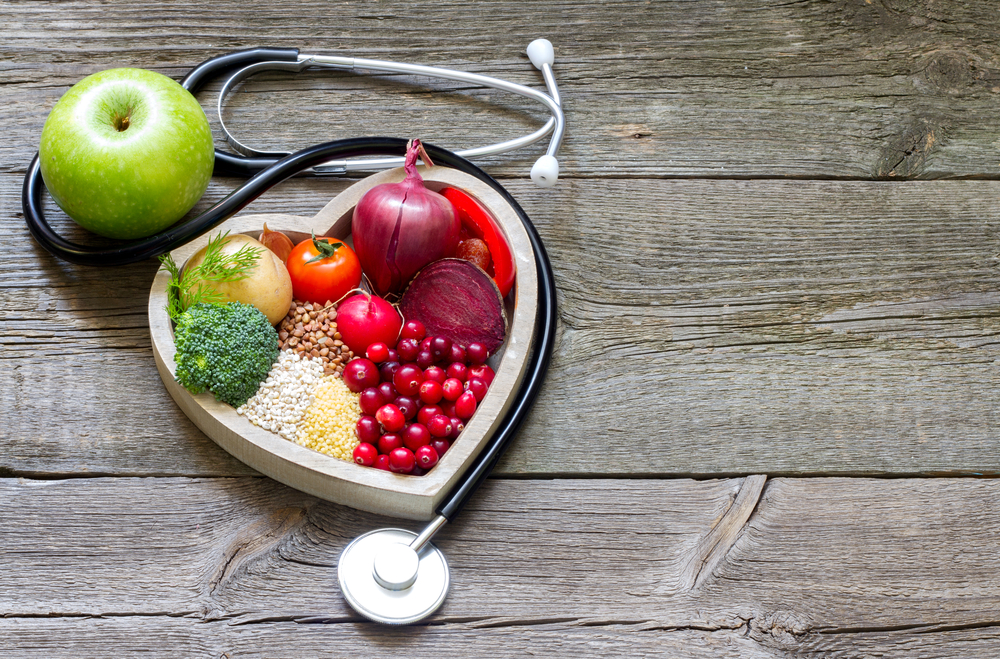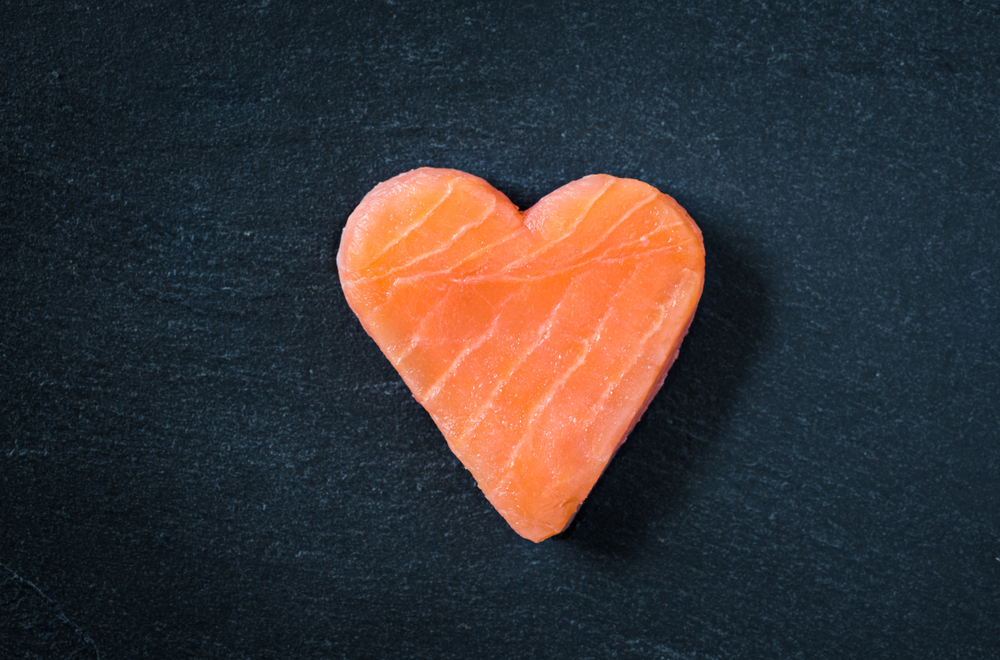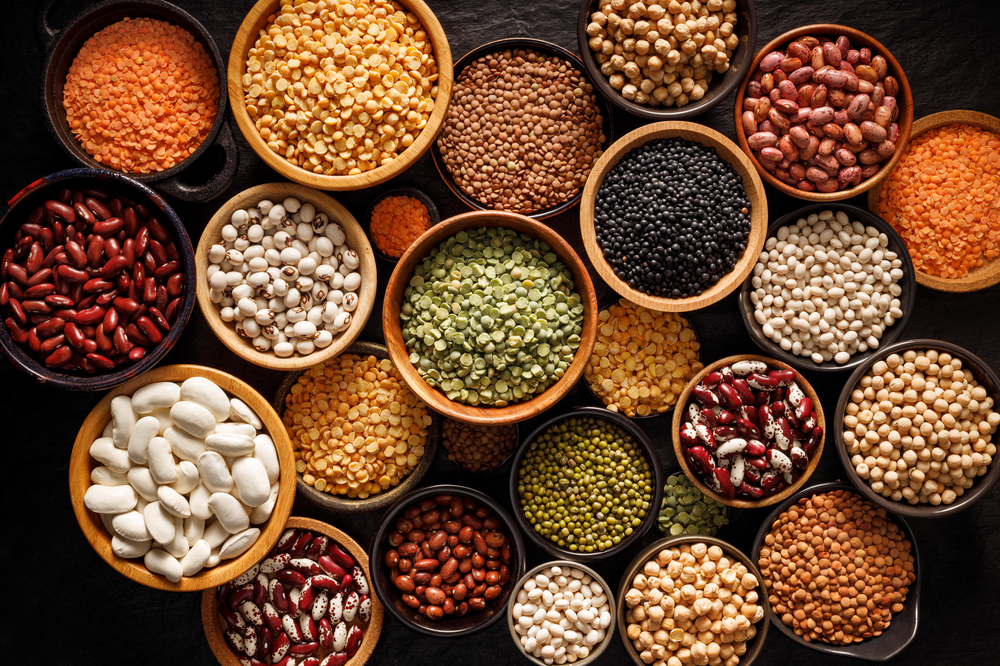Did you know heart disease is the leading cause of death for men and women in the United States?
Your heart works tirelessly to keep you going and deserves the best care possible. For overall well-being, fostering a strong cardiovascular system is at the forefront of your health.
A balanced, nutrient-dense diet is a big piece of the puzzle in boosting your cardiovascular system.
Vascular surgeons, experts in the field, recommend specific foods that can boost heart health and help prevent issues such as chronic venous insufficiency (CVI).
In this guide, we’ll highlight and detail a variety of foods from different groups known to promote heart health, answer common questions, and provide actionable tips for adding these foods into your day-to-day life.
Why Your Diet Matters for Heart Health
The relationship between diet and cardiovascular health is well-established.
When balanced with healthy lifestyle habits, nutrient-dense foods can aid in mitigating the risk of cardiovascular diseases, improve blood vessel function, and even reduce the chances of developing conditions such as chronic venous insufficiency.
A balanced diet abundant in fruits, vegetables, lean proteins, whole grains, and healthy fats provides your body with the necessary nutrients and compounds to maintain optimal cardiovascular function.
As we dive into each food group, we’ll discuss why these foods benefit heart health and provide expert insights on how they contribute to an optimal cardiovascular system.

Flourish with Fruit
Few food groups are as vibrant and beneficial as fruits for nourishing your cardiovascular system.
Fruits, packed with essential nutrients, antioxidants, and dietary fiber, promote heart health in many ways.
A mix of colorful fruits in your diet can give your body the components it needs to maintain optimal cardiovascular function and even lower the risks for chronic venous insufficiency.
Why Fruits are Crucial for Heart Health
Fruits, whether berries or juicy citrus, offer various benefits to a healthier heart, such as vitamins, minerals, and antioxidants that combat inflammation, oxidative stress, and other factors contributing to heart disease.
Additionally, the dietary fiber in fruits regulates cholesterol levels, supports digestion, and helps maintain a healthy weight – all core factors for heart health.
The duo of antioxidants and fiber in fruits works together to improve blood vessel function, lower blood pressure, and promote overall cardiovascular well-being.
A rainbow of fruits mixed into your daily diet can protect your heart and enhance your quality of life!
Best 5 Fruits for Your Heart
Berries (Blueberries, Strawberries, Raspberries)
Berries are packed with antioxidants called flavonoids, which are linked to improved blood pressure and reduced inflammation.
Oxidative stress can occur during imbalances in the making of free radicals and the body’s ability to neutralize them.
Anthocyanins, antioxidants found in berries, help combat oxidative stress and inflammation. These are factors that can contribute to cardiovascular diseases (CVDs).
The fiber content found in berries also aids digestion and supports heart health by regulating cholesterol levels.
Citrus Fruits (Oranges, Grapefruits, Lemons)
Citrus fruits are excellent vitamin C and fiber sources, helping lower blood pressure and promote healthy blood vessels.
A 2021 study conducted over the last decade states that roughly 530 to 600 grams of fruit per day (approximately four oranges) was beneficial to managing blood pressure.
Apples
Apples contain a soluble fiber called pectin, which plays a role in lowering cholesterol levels. They also contain quercetin, an antioxidant with potential heart-protective effects.
Avocado
Avocados provide healthy monounsaturated fats, which can help reduce harmful cholesterol levels and the risk of heart disease.
Bananas
High in potassium, bananas help regulate blood pressure and support proper heart function.
Incorporating Fruits into Your Diet
Start small! Toss small amounts of fruit into your favorite yogurt, or drink a glass of 100% juice to start your day.
Vegetable Vitality
Vegetables are the unsung heroes of a heart-healthy diet, offering an array of nutrients and compounds that support cardiovascular function.
From vibrant leafy greens to bell peppers, vegetables provide abundant vitamins, minerals, and fiber that can help prevent chronic venous insufficiency and maintain optimal heart health.
Why Vegetables are Crucial for Heart Health
Like fruits, vegetables pack vitamins, minerals, and antioxidants that protect against oxidative stress, inflammation, and the development of heart disease.
The high fiber content in veggies can aid digestion, regulate blood sugar levels, and support a healthy weight, which is a thumbs-up for heart health.
Veggies also contain phytochemicals that improve blood vessel function, reduce blood pressure, and promote cardiovascular well-being.
A mix of vegetables in your meals and smoothies gives your heart the nutrients it needs to thrive!
Best 5 Vegetables for Heart Health
Leafy Greens (Spinach, Kale)
Packed with vitamins, minerals, and fiber, greens such as spinach and kale are known as “superfoods,” which promote healthy blood pressure and provide essential nutrients for cardiovascular health.
Kale contains higher amounts of vitamin C, while spinach boasts other heart-healthy nutrients such as folate and vitamins A and K.
Leafy greens also contain an excellent nitrate source, improving blood vessel function.
Broccoli
Rich in antioxidants, fiber, and vitamins, broccoli helps lower cholesterol levels and promotes heart health.
It contains sulforaphane, a compound with anti-inflammatory and heart-protective components influencing cell function to prevent cardiovascular disease.
Tomatoes
Tomatoes are a great source of lycopene, an antioxidant associated with a reduced risk of heart disease.
Lycopene helps lower LDL or low-density lipoprotein cholesterol levels and shields against oxidative stress.
LDL is considered the “bad cholesterol,” and higher levels are linked to risks of cardiovascular disease.
Bell Peppers
High in vitamin C, fiber, and antioxidants, bell peppers contribute to improved blood vessel function and heart health.
Most peppers contain a spicy ingredient called capsaicin, which may help lower blood pressure through an increase in nitric oxide in your blood vessels. This causes blood vessels to relax and expand, promoting blood flow.
Bring the heat with the properties of capsaicin!
Garlic
Garlic contains allicin, a compound that can help lower blood pressure and reduce the risk of plaque buildup in arteries.
Garlic also has anti-inflammatory and antioxidant properties, benefitting cardiovascular health.
Incorporating Vegetables into Your Diet
Like fruits, start small. Try and start with a vegetable soup, or experiment with new recipes for different vegetables in your favorite meals.
Consider starting your day with a nutrient-packed green smoothie!
Animal-Based Foods and Heart Health
So far, we’ve touched on some of the top plant-based heart-healthy foods so far. While many plant-based options offer heart-healthy benefits, animal-based foods can also play a substantial role in promoting cardiovascular health.
When it comes to promoting cardiovascular health, choosing the right animal-based proteins and foods is essential.
Best 5 Animal-Based Foods for Heart Health
Fatty Fish (Salmon, Tuna, Trout)
Fatty fish, such as salmon, tuna, and trout, are rich in omega-3 fatty acids, making them a superb choice for heart health. Below is a list of heart-healthy benefits provided by Omega-3 fatty acids:
- Reducing arrhythmia, or irregular heartbeats
- Reducing heart failure or stroke risks
- Reducing triglyceride levels
- Reduce blood clotting

Poultry (Chicken, Turkey)
Poultry options such as chicken breast and turkey is a heart-healthy, lean source of protein when done right.
Reap the benefits of poultry when prepared skinless and baked, roasted, or broiled. Poultry is lower in saturated fats, making it a heart-healthy addition to your diet.
They provide essential amino acids for maintaining muscle mass and overall health.
Lean Cuts of Red Meat (Sirloin, Tenderloin)
Links between heart health and red meat are vastly debated in studies.
Protein sources such as red meat are excellent sources of nutrients such as protein, zinc, vitamin B, and iron, but consumption is widely recommended to be kept in moderation.
Certain cuts of red meat may be healthier than others in saturated fat content and how we consume it.
As previously mentioned, higher levels of LDL, or “bad” cholesterol, are linked to cardiovascular disease. High consumption of saturated fats from red meat raises LDL levels.
While red meat should be consumed in moderation, choosing leaner cuts such as sirloin or tenderloin as opposed to marbled cuts when indulging at your favorite steakhouse.
Red meat can still be part of a heart-healthy diet when enjoyed in moderation!
Eggs
Eggs are a versatile source of protein and nutrients, containing a little bit of everything, containing a variety of nutrients, such as vitamin D, riboflavin, folate, choline, vitamin A, and more!
Crack an egg as part of a heart-healthy diet that’s easy to prepare at any time of the day.
Dairy Options (Greek Yogurt, Skim Milk)
Dairy products like yogurt, milk, and cheeses provide nutrients such as calcium, magnesium, and potassium – a collection that can help control blood pressure.
Dairy options can be part of a heart-healthy diet, promoting strong bones and a healthy cardiovascular system.
Integrate the mentioned animal-based foods into your meals to ensure you’re getting the protein your body needs while uplifting your cardiovascular health.
Incorporating Heart-Healthy Animal-Based Foods
Cook your fresh catch on the grill, or bake your fish instead of frying it! Need something quick? Crack an egg to enjoy a versatile, filling option any time of the day.
Grains and Legumes for Heart Health
Whole grains and legumes are relevant to a heart-healthy diet, providing complex carbohydrates, fiber, and plant-based protein that contribute to stable blood sugar levels, digestion support, and maintaining a healthy weight.
Why Grains and Legumes are Crucial for Heart Health
Fiber sources like whole grains and legumes help lower cholesterol levels and improve your digestive health.
These foods have a low glycemic index, releasing energy gradually and supporting steady blood sugar levels.

Best 5 Grains and Legumes for Heart Health
Oats
Oats are rich in beta-glucans, a type of soluble fiber found in the cell walls of certain plants that helps lower LDL cholesterol levels and promote a healthy gut through a slow digestion process.
This slow movement through your digestive tract helps balance your blood sugar and reduces your absorption of cholesterol.
Quinoa
A complete protein source, quinoa is also high in fiber, vitamins, and minerals that support cardiovascular health.
Like apples, It contains antioxidants like quercetin, which may protect the heart.
Brown Rice
Whole grain brown rice contains fiber and high magnesium levels, which are nutrients that can improve heart health and control blood sugar.
Lentils
High in fiber and plant-based protein, lentils promote healthy cholesterol levels and can help maintain steady blood sugar levels.
Lentils are also a natural source of folate, which supports heart health through the breakdown of an amino acid called homocysteine.
Homocysteine can harm the inner lining of our arteries, elevating the risks of heart attacks and strokes.
Chia Seeds
Chia seeds boost heart health and contain omega-3 fatty acids, fiber, and antioxidants.
The omega-3s in chia seeds help lower inflammation and benefit lipid profiles.
Incorporating Grains and Legumes
Breakfast with a bowl of oatmeal, or replace refined grains with whole grains such as quinoa and brown rice.
Healthy Fast Food and Dessert Options
In today’s fast-paced world, healthy on-the-go food choices can be challenging.
However, many fast food chains have increased awareness about nutrition, with healthier menu alternatives catering to many dietary preferences or restrictions.
If you’re out and about, and looking for a healthier option, here are some options to consider:
Grilled Over Fried
If you want a sandwich or platter, choose grilled protein instead of fried! If you can customize your fast food choice, choose whole-grain buns or wraps for bonus fiber.
Salads
Many fast food places offer a range of salads with various protein options, such as grilled chicken or shrimp. Avoid excessive bacon, cheese, fried toppings, and high calorie dressings to ensure your salad is heart-healthy.
Frozen Yogurt
Choose frozen yogurt over ice cream for a sweet treat and top it with fresh fruit for a healthier dessert alternative!
Venous Insufficiency and Heart Health
You may be wondering, what is the best diet for venous insufficiency?
For individuals with chronic venous insufficiency (CVI), a diet that supports cardiovascular health is especially relevant to you!
With chronic venous insufficiency, blood flow is not efficiently returning to your heart due to damaged veins.
Keep your veins in mind; a diet promoting heart health can significantly manage issues such as venous insufficiency.
CVI can bring discomfort and lead to severe venous conditions, diseases, and abnormalities, such as deep vein thrombosis (DVT) and varicose veins.
Wrapping Up
By incorporating these heart-boosting foods into your diet, you’re taking proactive steps toward better cardiovascular health.
From colorful, nutrient-packed fruits to hearty legumes and wholesome grains, each food group offers unique benefits that contribute to the well-being of your heart.
Welcome these foods to your daily routine and enjoy the long-term rewards of a healthier, happier heart.
We vascular surgeons at Michigan Vascular Center have seen firsthand how simple yet effective lifestyle changes can improve heart health and blood flow. In fact, we often incorporate these dietary changes into our treatment plans for our patients.
If you want to learn more about vascular and venous disease treatment options, reach out to us today!

